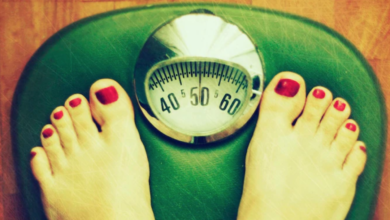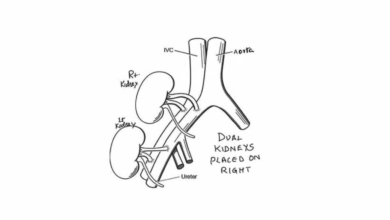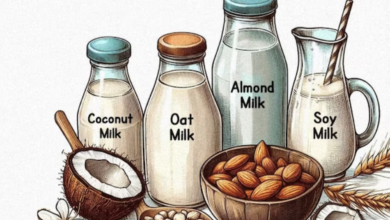Tips to avoid infections, diarrhea, viral fever, and conjunctivitis in monsoon
There is a higher risk of fungal infection, diarrhoea, food infection, viral fever and eye problems like conjunctivitis in rainy season but most people do not know about the symptoms of these diseases. Here’s all you need to know about their causes, symptoms and treatment
Even though the monsoon gives relief from the scorching heat, it also brings along life-threatening diseases and the number of patients with dengue, malaria, swine flu, leptospirosis and gastric problems increases during the rainy season. In such a situation, there is no proper treatment in time and sometimes, the patient can even lose his life.
Apart from this, many other diseases also strike-in. There is a higher risk of fungal infection, diarrhoea, food infection, viral fever and eye problems but most people do not know about the symptoms of these diseases, which is why it is important to create awareness about such diseases in the rainy season.
In an interview with HT Lifestyle, Dr Tribhuvan Gulati, Expert Diabetes, Thyroid, Metabolic Disorders at Delhi’s Apollo Spectra Hospital, revealed about 5 monsoon diseases, their causes, symptoms and how to take care of yourself during the rainy season:
1. Fungal infection
Along with various diseases in the rainy season, the monsoon also brings with it many skin-related diseases. The humidity increases significantly during the rainy season. Due to this fungal and bacterial infections and skin allergies also rise. Therefore, it is very important to take good care of the skin during the monsoon season.
Causes of fungal infections – Poor lifestyle choices increase the risk of fungal infection. For example, if you are a runner (athlete). Or if you sweat a lot, you may experience many of the symptoms of a fungal infection called athlete’s foot. The fungus often grows in warm, moist environments. Wearing sweaty or wet clothes is also a risk factor for your skin infection. A cut or tear in the skin can also allow bacteria to penetrate into the deeper layers of the skin and cause various types of infection and infections may occur. Non-compliance with personal hygiene excessive sweating, wearing tight clothes and shoes, taking antibiotics and a weak immune system can also be the causes behind it.
Symptoms – Redness of skin, rash, frequent itching, blisters and blisters at the itchy area, tingling sensation at the itchy area, and burning sensation at the itchy area are some of the symptoms of it.
Treatment – Do not wear wet clothes so that there is no fungal infection in the monsoon, and take bath daily, after getting drenched in rain, the body should be completely dry. Dry thoroughly, wear clean ironed clothes, if there is an infection in the feet, do not wear shoes, or other person’s clothes. Do not use towels, soap, comb, wear cotton and loose clothes, and do not wear tight clothes. Do not use any cream, wash clothes with hot water, and do not scratch with nails, it can cause infection.
2. Diarrhoea
Occurs when there is a problem with your gastrointestinal tract. This is a digestive problem that usually may be caused by bacteria or viruses. Apart from this, having contaminated water and food items, any medicine and allergies can cause diarrhoea. There are many symptoms of diarrhoea. Depending on whether you have diarrhoea, you may see one or more symptoms.
Common signs and symptoms of diarrhoea – Nausea, abdominal pain, feeling tired, loose motion, dehydration, fever and blood in the stool. Apart from this, if symptoms of diarrhoea are seen in young children, then they should not be ignored. In many children, symptoms like headache, inability to urinate, fatigue, fever, irritability, and lethargy are seen. If you notice them in your children then take him/her to the doctor immediately. If treated in time, the child can get well soon.
Treatment and preventive tips to avoid diarrhoea – The main cause of diarrhoea is rotavirus. Diarrhoea can be prevented through the rotavirus vaccine. That’s why it is important for children to get this vaccine. It is important to sanitize your hands after returning from the toilet. Keep leftover food and other food items in the fridge. Wash raw fruits and vegetables thoroughly with water. Avoid consuming street foods. Having green tea can reduce the symptoms of diarrhoea. Due to the lack of vitamin A in the body, people often suffer from diarrhoea. So, vitamin A foods can prove beneficial. People having the problem of diarrhoea need more water in the body. Your doctor will suggest you oral rehydration (a way to reduce dehydration in your body). Oral rehydration is suitable for both children and adults.
3. Food infection
Many people are worried about food infection. Food poisoning is a common problem during the rainy season. Every year, lakhs of people fall prey to it and thousands of people become seriously ill. So, it is important to get treatment immediately when it occurs.
Symptoms of food infection – Due to food infection, the problem of stomach ache, nausea, loose motion, and vomiting starts. There are many cases, in which it starts with a headache. Apart from this, there is a lot of gas formation in the stomach and tiredness.
Causes of food infection – Food infection can occur due to contact with bacteria. Infection can be caused by taking antibiotics, consuming spoilt food, and someone has any stomach-related problem like constipation, or gas that can invite food poisoning. A person who is deficient in immunity is more prone to food infection. One of the reasons for food infection is also genetic. Therefore, if there is a case of food poisoning in a person’s family if there is a disease, then he should take special care of his health.
Preventive tips to avoid food infection – Do not keep food outside for a long time during the rainy season. Do not consume leftover food items on the second day. Wash vegetables and fruits thoroughly. Try to drink ORS as well.
4. Viral fever
Most people start suffering from viral fever and cough due to changes in weather during the rainy season. Viral infection can occur at any age but is more common in children. Fever is seen due to low immunity in children. In such a situation, exhaustion, cough, infectious cold, vomiting, diarrhoea in children are common occurrences. Even dehydration can also occur due to high temperatures. People have symptoms like fatigue, cough, joint pain, cold, sore throat, and headache.
Cause of viral fever – Contaminated water and food due to pollution, the microparticles present in the polluted air go inside the body. Immunity deficiency, and coming in contact with a patient with viral fever are some other reasons.
Ways to prevent viral fever – Eat boiled vegetables and green vegetables. Avoid contaminated water and food. Drink boiled water, and avoid coming in contact with a patient suffering from viral fever. Follow proper diet at the time of change in weather. To keep the immune system strong, adopt a good lifestyle.
5. Conjunctivitis
This is a type of infection that causes swelling of the eyes. Due to this, the eyes become red, swollen, and sticky. Eye infection can happen during the rainy season and the eyes tend to become red. One will also have a watery discharge. Coming in contact with a person suffering from this eye condition can also cause infection in another person. In case of any kind of infection, the doctor should be consulted immediately.
Symptoms of conjunctivitis – Red eyes, continuous watery eyes, swollen eyelids, irritation in the eyes, blurred vision, and swelling of the eyes are some of the symptoms that one should watch out for.
Tips to avoid eye infection – Wash your hands regularly with soap and water, don’t share your personal belongings, do not rub your eyes with dirty hands, and use hand sanitizer.
Treatment of conjunctivitis – Pink eye therapy is determined by the underlying cause. In some circumstances, symptoms will go away on their own in some days. Under such circumstances, an underlying infection may require therapy with oral medications. Wearing contact lenses should also be avoided unless your ophthalmologist tells you to do so. Don’t put your contact lenses on until the conjunctivitis is gone.








